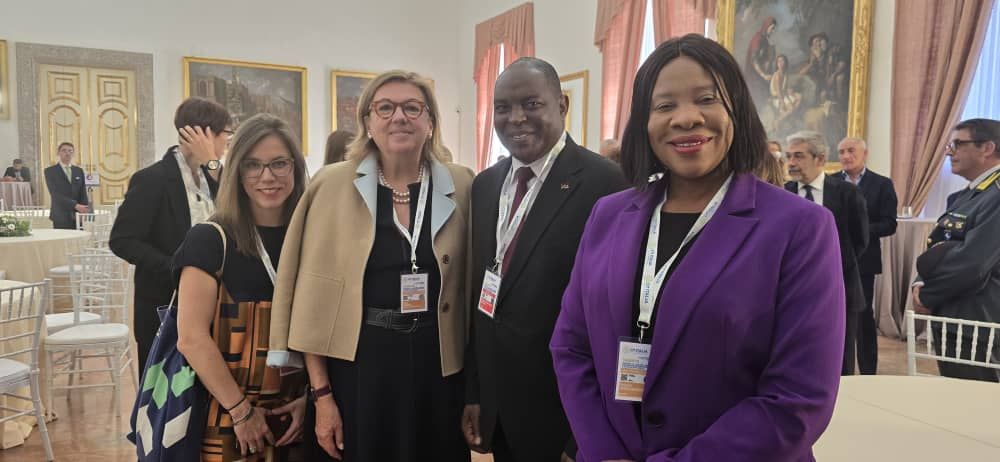By Elywin Chighali Mhango
Malawi’s Minister of Education, Madalitso Kambauwa Wilima, delivered a compelling address at the prestigious G7 Italia 2024 High-Level Event, hosted at the historic Caserta Royal Palace in Italy. The theme of the summit, “Investing in Lifelong Learning for Job Creation and Resilience: A Dialogue with Africa,” resonated deeply with Minister Wilima’s impassioned call for strategic investments in Malawi’s healthcare sector.
In her address, Minister Wilima highlighted Malawi’s commitment to aligning its development goals with Malawi 2063 and the Africa Health Strategy (2016-2030), emphasizing the importance of bolstering key pillars of the healthcare system. These pillars encompass the health workforce, medical products and technologies, medical information and research, medical service delivery, health care financing, and leadership, ethics, and governance.

One of the key focal points of Minister Wilima’s speech was the imperative need to enhance healthcare education by integrating vital topics, including climate change and mental health, into the curriculum. She underscored ongoing efforts to expand pre-service and in-service training for health workers, aimed at addressing critical shortages in specialist areas such as cardiothoracic surgery, neurosurgery, oncology, and medical diagnostics.
Moreover, Minister Wilima stressed the necessity of constructing cutting-edge educational facilities and centers of excellence in health research to facilitate the advancement of medical knowledge and innovation within Malawi.
Discussing the imperative of medical products and technologies, Minister Wilima highlighted Malawi’s innovative capacity, citing the success of the “Newborn Essential Solutions and Technologies (NEST)” initiative, which has garnered acclaim for its life-saving impact on preterm infants. She emphasized the urgent need to boost Malawi’s capacity to produce and maintain critical medical equipment and products, advocating for the utilization of sustainable energy solutions such as solar power to enhance healthcare service delivery, especially in rural areas.
The speech resonated strongly with the audience, drawing attention to Malawi’s proactive approach to surmounting healthcare challenges through strategic investments in education, technology, and workforce development. Minister Wilima’s visionary outlook set a compelling tone for fruitful dialogue and collaboration between African nations and international partners, underscoring the transformative potential of investing in lifelong learning for sustainable job creation and community resilience.


